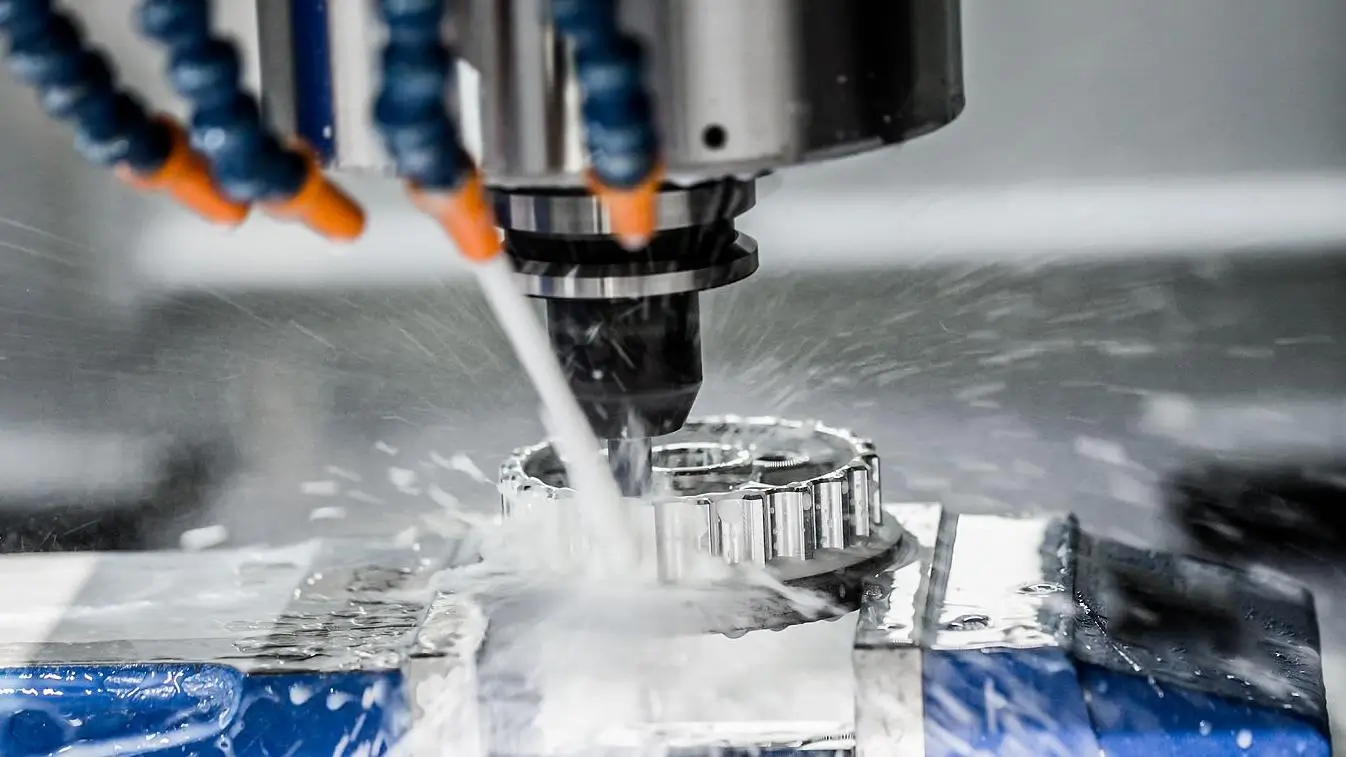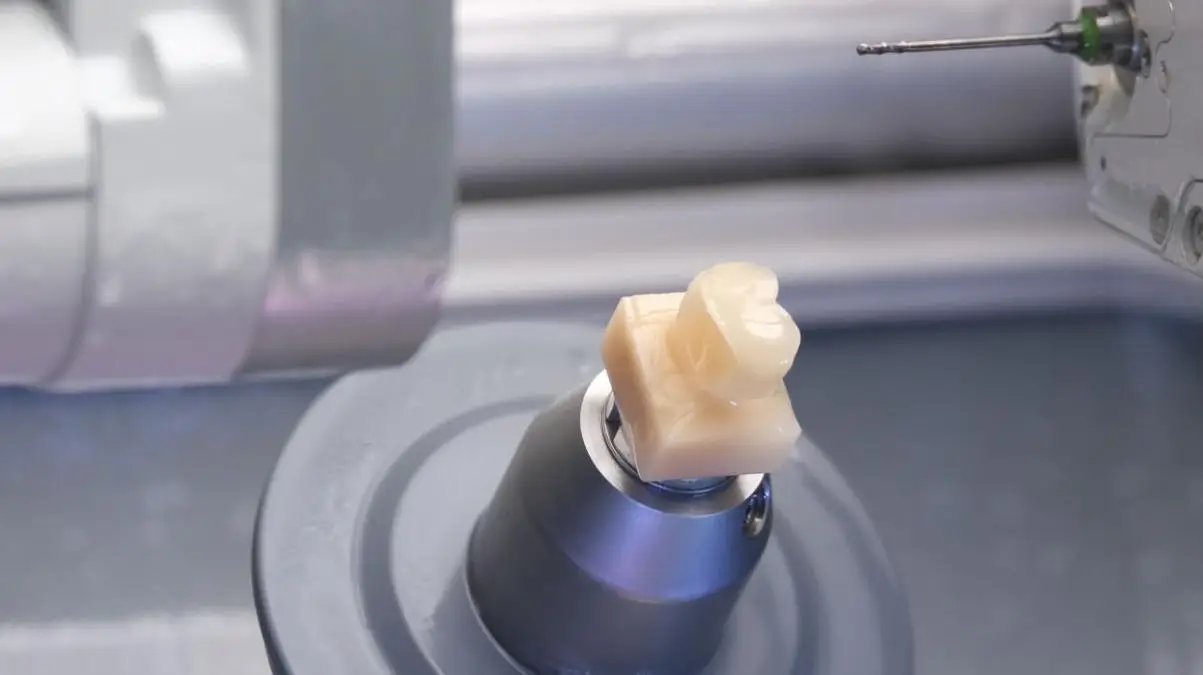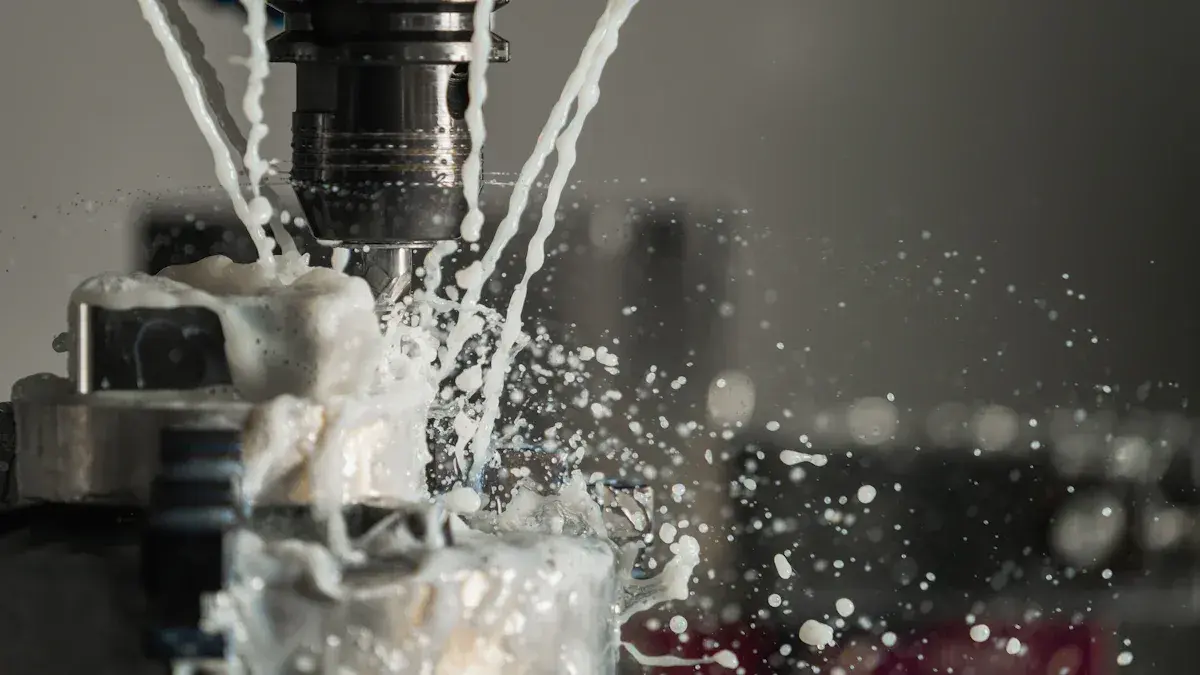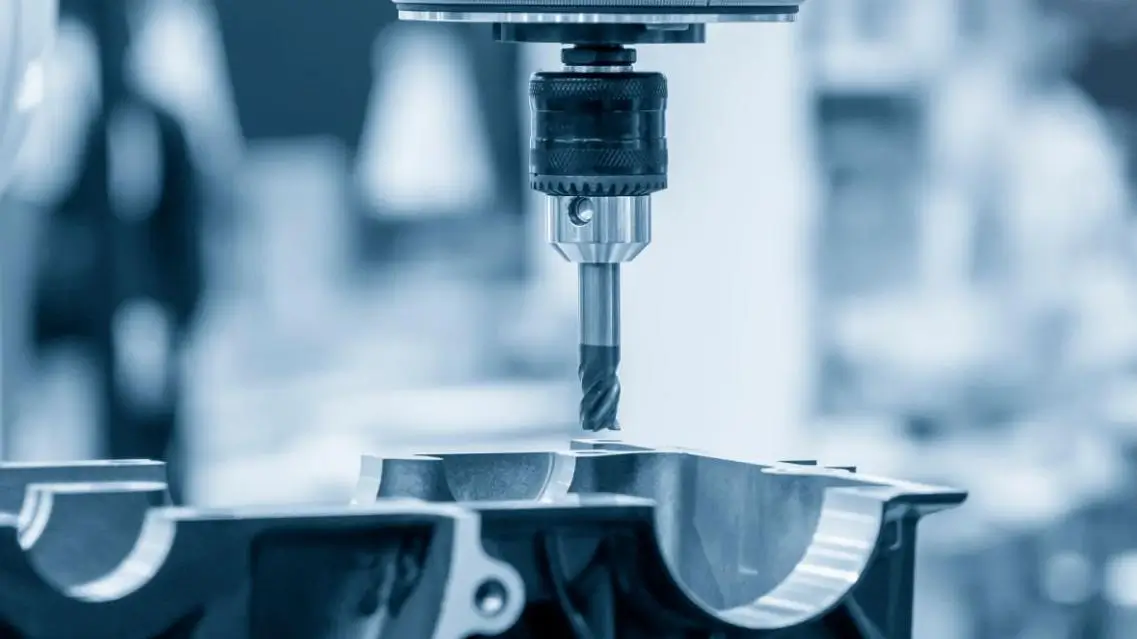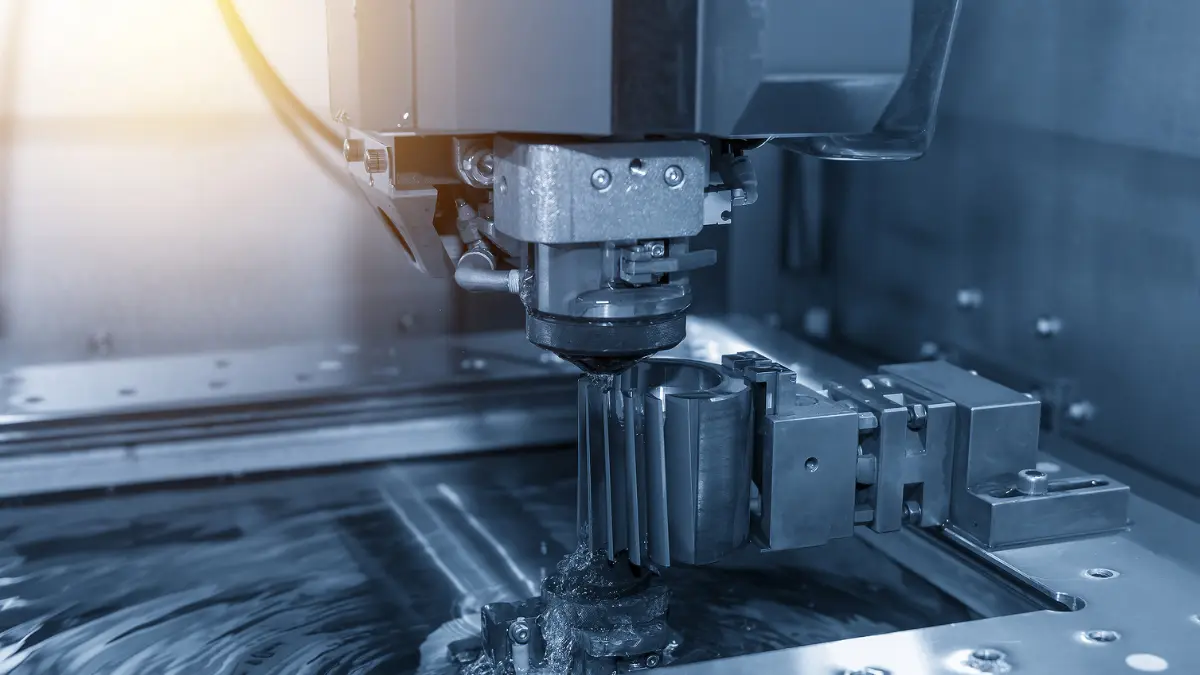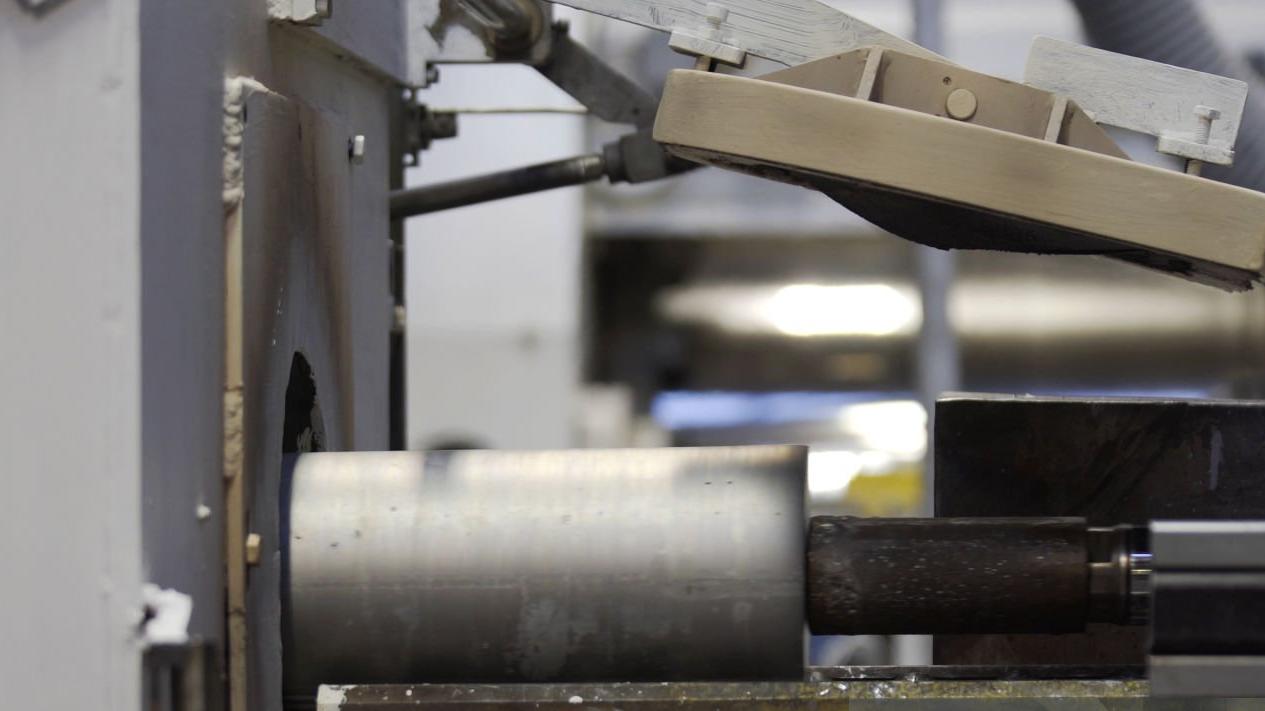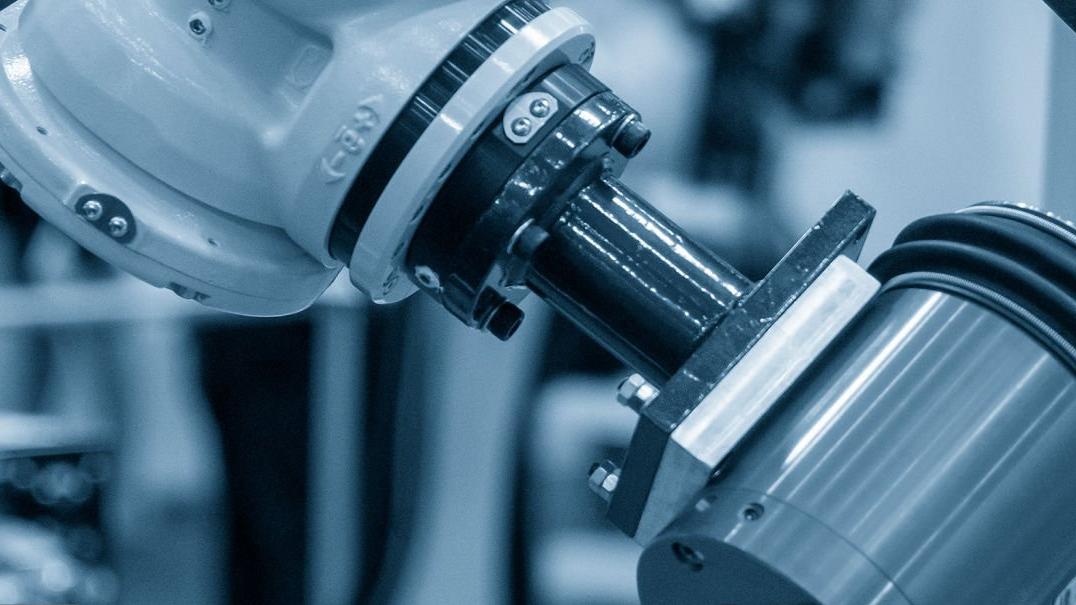In the fast-evolving medical, aerospace, and electronics industries, the demands for CNC precision machining go far beyond conventional manufacturing processes. Precision, material reliability, and process traceability are no longer optional—they are essential. As one of the core technologies enabling high-end manufacturing, CNC machining continues to transform these industries through innovative processes and intelligent technologies.
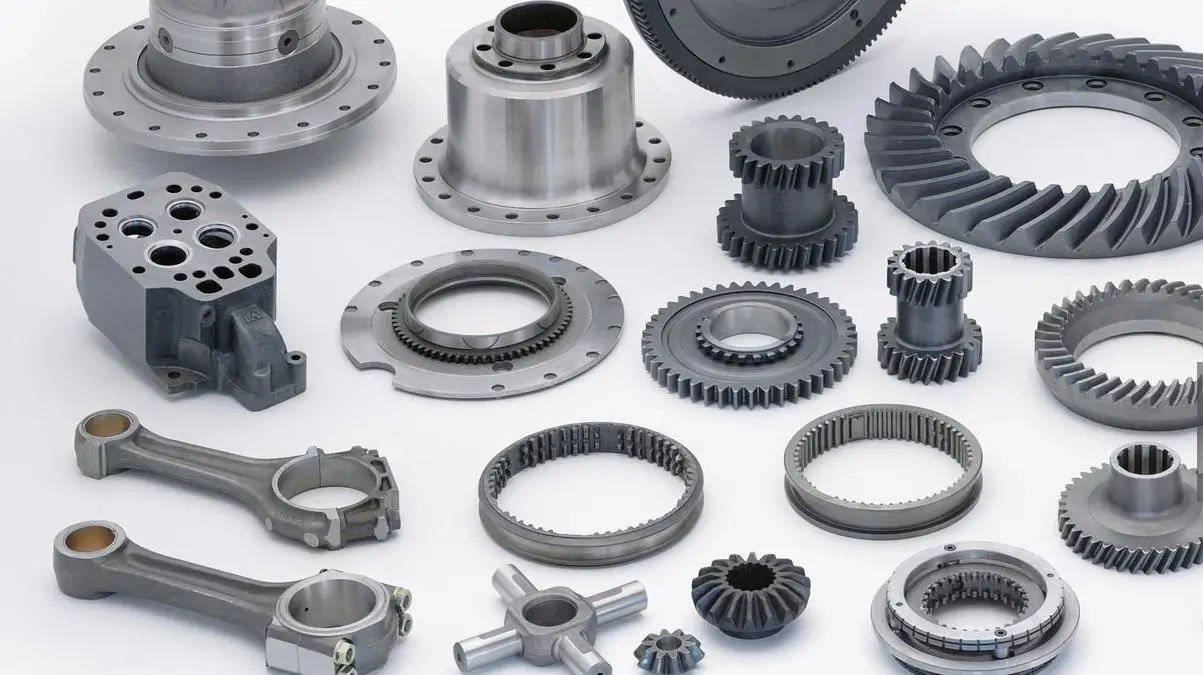
Medical Industry: CNC Precision Machining for Zero-Defect Components
In the medical field, CNC precision machining makes high-precision parts for surgical tools, implants, and dental devices. CNC technology enables manufacturers to achieve precision and surface finishes far beyond the capabilities of manual processes.
1. Innovation Highlights:
- Utilizing 5-axis CNC machining for complex device curves to reduce manual polishing;
- High-precision CMM inspection and full SPC control to ensure traceability;
- Special toolpaths and cooling strategies for medical-grade materials like stainless steel, titanium alloys, and PEEK.
2. Rapid Verification and Accelerating Clinical InnovationIn the development of medical devices, rapid prototyping is crucial. CNC machining can directly read CAD files and quickly produce high-quality parts, far outperforming methods like injection molding.
Innovative Applications:
- Collaborating with doctors and design teams for DFM (Design for Manufacturability) reviews;
- Supporting small-batch, personalized customization capabilities;
- Surface treatments like electropolishing and anodizing, meeting ISO 10993 standards.
Aerospace Industry: CNC Precision Machining for Lightweight and Reliable Structures
1. Precision Machining of High-Performance MaterialsThe aerospace sector heavily uses materials like titanium alloys, nickel-based superalloys, and aerospace-grade aluminum (7075/7050). These materials are difficult to machine. They create a lot of heat and cause tools to wear out quickly. This presents big challenges for CNC machining companies.
Solutions:
- Low-vibration, high-rigidity CNC equipment with customized toolpaths
- High-Speed Machining (HSM) for enhanced surface integrity
- Temperature control and thermal deformation compensation systems to ensure accuracy in high-temperature environments.
2. Batch Consistency and Full Lifecycle TraceabilityEach bolt and bracket in the aerospace industry could have safety implications. Consistent batch quality, full-process traceability, and repeatability are mission-critical in aerospace manufacturing.
Solutions:
- MES (Manufacturing Execution System) monitors each step, recording process parameters and operators;
- Using QR codes or RFID tags for material tracking;
- Sharing inspection reports, batch data, and material certificates with customers.
Electronics Industry: CNC Precision Machining for Extreme Miniaturization and High Integration
1. Efficient Machining Solutions for Micro PartsIn the electronics industry, especially for communications and wearable devices, the demand for miniature metal parts is growing rapidly. Tolerances of ±0.01mm or below are common, and traditional processes often fall short.
Technology Highlights:
- Using micro tools and high-speed spindles to machine ultra-small structural features;
- Vacuum suction fixtures and micro tooling designs to improve clamping efficiency;
- Surface roughness Ra<0.4μm to meet both structural and electrical contact requirements.
2. Multi-Process Integration to Enhance EfficiencyWith the short product life cycles and rapid updates in the electronics industry, shortening delivery times is crucial.
Innovative Paths:
- Integrating aluminum extrusion and CNC post-processing to improve the efficiency of structural part machining;
- Introducing CNC automatic loading and unloading systems to support 24-hour continuous production;
- Reusing fixtures for batch production, reducing line changeover time.
CNC Precision Machining Meets Smart Manufacturing
In addition to the core improvement of machining technologies, digital management and process collaboration are reshaping the CNC industry chain:
- Automated Quoting and Online Drawing Review Systems:Improving front-end response times;
- Remote Equipment Monitoring and Preventive Maintenance:Reducing unplanned downtime;
- Collaborative Platforms and Transparent Communication Processes:Customers can track progress and view inspection reports in real-time.
Successful Case: CNC Precision Machining of Disposable Orthopedic Surgical Guides
Our technical team successfully delivered high-precision disposable orthopedic surgical guides for a German medical device client. The project required tight tolerances, medical-grade PEEK materials, and fast turnaround—all achieved through advanced 5-axis CNC machining and rigorous quality control.
Project Challenges:
- Complex structure, small dimensions, and large batch variations;
- Medical-grade PEEK material with strict surface finish control;
- Tight delivery deadline of 2 weeks, requiring traceability and batch inspections.
Solutions:
- Performing early DFM optimization to remove 3 unnecessary assembly structures;
- Using high-precision CNC machining with 5-axis processing to minimize tool changes;
- Using a digital quality inspection system to generate PDF reports for batch deliveries.
Results:
- Production efficiency increased by 35%, rework rate reduced to 0.3%;
- The client went from initial development to mass production in just 30 days;
- Became a long-term supplier for the client’s orthopedic product series.
CNC Precision Machining for Sustainable Manufacturing and Carbon Footprint Control
As environmental regulations and market demand become increasingly stringent, European and American customers are paying more attention to the environmental and sustainable development capabilities of their suppliers. Our factory continuously optimizes manufacturing processes, adopting energy-efficient equipment and eco-friendly materials to reduce the carbon footprint in production.
Green Manufacturing Solutions:
- Using energy-efficient CNC machines and cutting fluid recycling systems;
- Utilizing recyclable packaging materials and providing carbon footprint reports for customers;
- Participating in ISO 14001 environmental management certification to promote low-carbon manufacturing.
CNC Precision Machining for Flexible Production and Optimized Customer Collaboration
With the growing demand for product customization and small-batch production, flexible manufacturing capabilities are crucial. We offer flexible production scheduling and personalized services to ensure a smooth transition from small-batch prototypes to large-scale production.
Flexible Manufacturing Highlights:
- Modular fixture systems and ERP/MES scheduling for flexible production;
- Seamless transition from sample verification to mass production with rapid delivery;
- Providing PPAP, FAI, and other validation support during mass production.
Optimized Customer Experience:
- Multilingual technical support in English, German, French, and other languages;
- Dedicated project manager for 24-hour response time;
- Offering video conferencing for technical clarifications and remote quality checks.
Industry Trends and Customer Value Delivery through CNC Precision Machining
- Medical Industry:With the growing demand for personalized medical devices, the integration of CNC machining and customization will drive the future development of the sector.
- Aerospace Industry:Electric aviation and new materials (carbon fiber + titanium) are becoming key directions for future growth.
- Electronics Industry:The demand for precision machining of fine heat dissipation structures is increasing with the rise of AI devices and 5G antenna modules.
Frequently Asked Questions about CNC Precision Machining
Q: What certifications do CNC parts for export to Europe and America need to meet?
A: Depending on the industry, we provide certifications such as ISO 13485 (medical), AS9100 (aerospace), etc., to ensure products meet international standards.
Q: How long is the typical machining and prototyping cycle?
A: Sample delivery time is usually 3-7 days, and mass production cycles are typically 15-30 days, depending on order volume.
Q: Can I provide my own CAD files for direct machining?
A: Yes, we support customers providing CAD/3D models for direct machining and also offer DFM review and optimization suggestions.
Q: How does CNC machining ensure zero-defect manufacturing?
A: Zero-defect manufacturing is achieved through a combination of advanced process control, precision equipment, and rigorous inspection. Key practices include: High-Precision Equipment,Quality Assurance Systems, Material-Specific Strategies,Traceability and Documentation.
Q: What are the typical tolerances achievable with CNC precision machining?
A: Standard Tolerances: ±0.05 mm (±0.002″) / Precision Tolerances: ±0.01 mm (±0.0004″) / Ultra-Precision (for micro-machining): ±0.005 mm (±0.0002″) or tighter
Surface finishes can also reach Ra 0.4μm or better, suitable for both functional and cosmetic applications.
Conclusion: CNC Precision Machining – A Synergy of Technology, Collaboration, and Innovation
The medical, aerospace, and electronics industries are driving CNC machining to higher precision, faster responses, and stronger collaboration. This is not just an upgrade of equipment and processes; it is a full-link innovation from product design and material selection to process planning and quality control.
If you’re looking for a trusted partner in CNC precision machining, our team of experts is ready to support your medical, aerospace, and electronics projects with innovative solutions. Contact us today to discuss how we can help you achieve your manufacturing goals.

